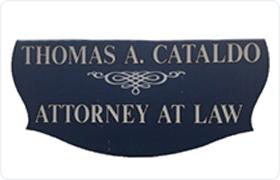Mountain Lakes DUI-DWI Lawyer, New Jersey
Sponsored Law Firm
-
 x
x

Click For More Info:
-
Thomas A. Cataldo, Attorney at Law
52 South Street Morristown, NJ 07960» view mapCriminal Defense Law Tip The Scales In Your Favor!
Thomas A. Cataldo, Attorney at Law has the legal experience you need at affordable rates that can't be beat.
800-834-4291
Gregg A. Wisotsky
Workers' Compensation, DUI-DWI, Products Liability, Medical Malpractice
Status: In Good Standing
FREE CONSULTATION
CONTACTGerald J. Kelly
DUI-DWI, Criminal, Contract, Business Organization
Status: In Good Standing Licensed: 48 Years
Lynne Goldman
Workers' Compensation, Family Law, DUI-DWI, Medical Malpractice
Status: In Good Standing
 Thomas Cataldo Morristown, NJ
Thomas Cataldo Morristown, NJ Practice AreasExpertise
Practice AreasExpertise
